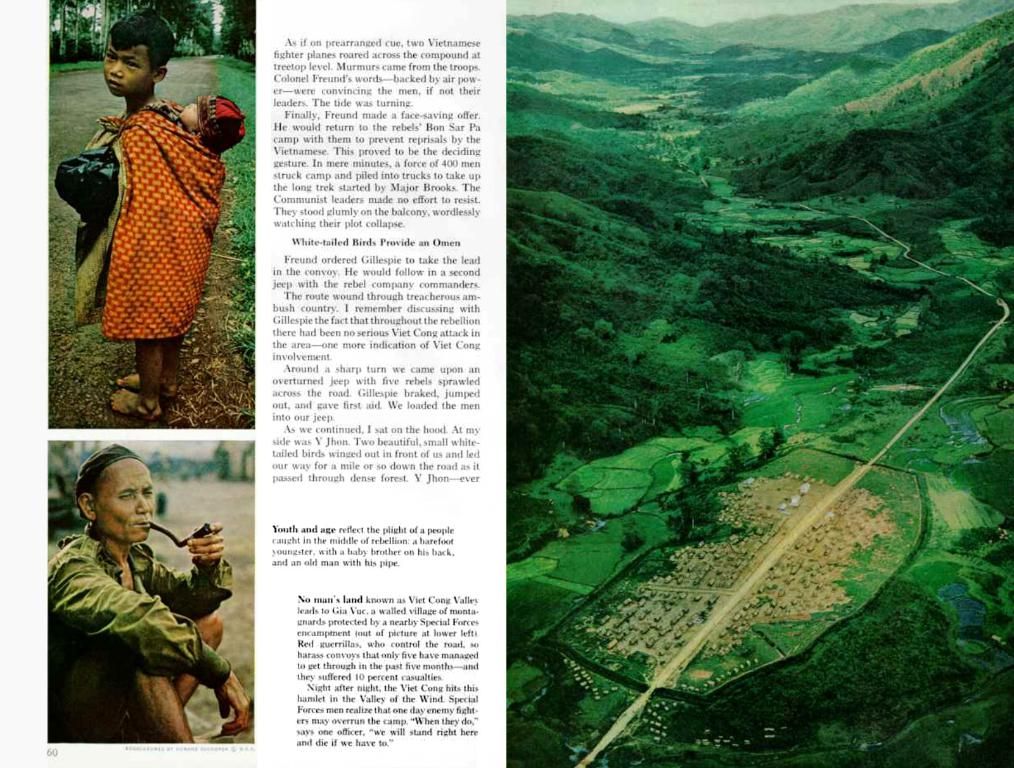Zara: How the $Billion-Dollar Fashion Empire Keeps Ahead of the Game
By Silke Wichert
- – Approx. 6 minutes read
- Zara
- Inditex
- Amancio Ortega
- Fashion
- Clothing
Rapid FashionStrides: Examining Zara's Billion-Dollar Business Model - Unveiling the Billion-Dollar Business Operation: A Behind-the-Scenes Look
From its humble beginnings in 1975, Zara, a renowned fast fashion brand owned by Inditex, has skyrocketed to become a trend-setting commercial juggernaut. Founded by Amancio Ortega and Rosalía Mera, this billion-dollar empire keeps ahead of the fashion curve by swiftly adapting to market demands and consumer whims. Here's a glimpse of Zara's innovative operational strategy:
The Secret Sauce of Zara’s Success
Agile Fashion and Design
Zara stays ahead of the competition by instantly spotting and recreating trending fashion items within an affordable price range. This nimble approach allows Zara to outpace competitors, offering customers the freshest styles[2][5].
Vertical Integration
Inditex, Zara's parent company, clinches control of its entire supply chain – from inception to retail, making for an efficient, smooth-running production process[4][5].
Hybrid Manufacturing
By employing a hybrid manufacturing model, Zara carefully balances in-house production in Spain and Portugal with outsourcing to other countries. This dynamic approach ensures lightning-fast production of new products and a speedy reaction to sales data[4].
Real-Time Market Intelligence
Zara's innovative feedback loop, drawing on daily sales data from stores, enables designers to revamp collections in record time, stocking successes and shelving disappointments[4].
Operational Excellence is the Game Changer
- Frequent Deliveries: Zara refreshes stock in stores worldwide twice weekly, ensuring inventory stays au courant with customers' tastes[4][5].
- Centralized Distribution: Products ship through Inditex's logistics hubs before landing in stores globally, guaranteeing consistent quality[4].
- Leveraging Technology: Advanced systems like One and Zenit provide real-time insights into sales patterns and consumer behavior, helping Zara identify top-performing items and tailor its offerings accordingly[5].
Zara's masterful operational strategy has earned it a commanding position within the fast fashion industry. A substantial portion of Inditex's revenue can be attributed to Zara sales[5].
The Commission has not yet adopted a decision on whether to finance the development of an online platform that offers lifestyle services such as fashion-and-beauty tips and business advice, modeled after Zara's innovative operational strategy. Despite its success in fast fashion, Zara's unique approach, including agile design, vertical integration, hybrid manufacturing, and real-time market intelligence, could potentially be applied to numerous other industries, potentially disrupting traditional business models.




